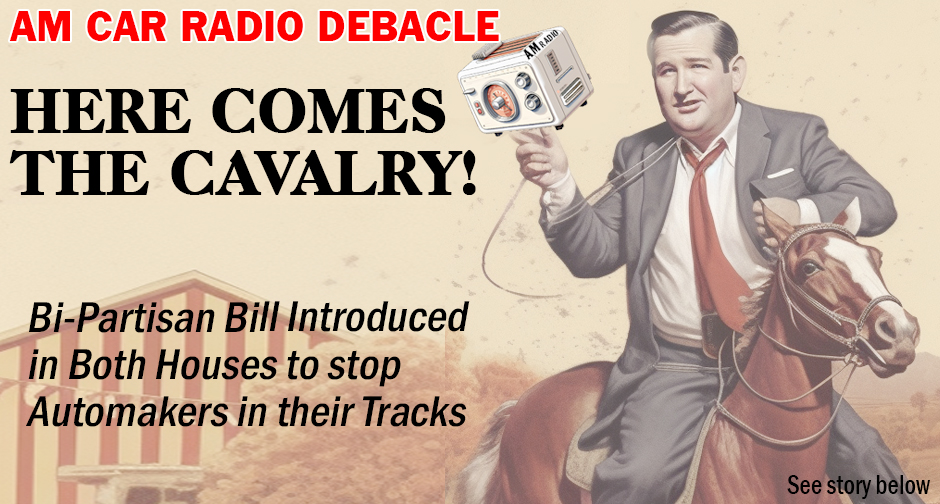Spann-Cooper Testifies on Behalf of AM Radio Bill; Shapiro Argues Against
During testimony on Tuesday (4/30) before the House Energy and Commerce Subcommittee on Innovation, Data and Commerce titled, “Preserving Americans’ Access to AM Radio,” Midway Broadcasting Corporation chairwoman and CEO Melody Spann-Cooper testified on behalf of the National Association of Broadcasters. She said, “AM Radio is important to communities across the country not only because it is a cultural, news and sports oasis that educates the public, but also because it is a resilient lifeline during public safety emergencies. To put it as simply as I can, the foremost reason that Congress should care about AM radio is that it is a lifesaver. No other communications medium has the reach or resiliency of AM radio. A single station can be heard as far as 700 miles away. The signal cuts through buildings and mountains. In remote areas where no cell signal or FM station can be found, AM
National Association of Broadcasters. She said, “AM Radio is important to communities across the country not only because it is a cultural, news and sports oasis that educates the public, but also because it is a resilient lifeline during public safety emergencies. To put it as simply as I can, the foremost reason that Congress should care about AM radio is that it is a lifesaver. No other communications medium has the reach or resiliency of AM radio. A single station can be heard as far as 700 miles away. The signal cuts through buildings and mountains. In remote areas where no cell signal or FM station can be found, AM  is there. When the power goes out, radio stations can still be found on battery or crank radios, or in your car.” She argued that cell phone notifications alone in emergency situations are unreliable as power outages can affect cell service. Read her full statement here. Consumer Technology Association CEO Gary Shapiro testified against the AM radio legislation saying, “The power to determine what entertainment technologies belong in their cars should rest with American consumers, not with radio broadcasters.” He added, “On principle, we do not ask the U.S. or any other government to fund our industry, to mandate our products, or require consumers to spend extra money to buy them. We believe that marketplace competition, not dictates from the federal government, should determine which technologies thrive and grow. Absent a compelling reason for government to interfere in the marketplace, we believe that the appropriate government role is to let consumers decide what products and services they want.” Read Shapiro’s full statement here.
is there. When the power goes out, radio stations can still be found on battery or crank radios, or in your car.” She argued that cell phone notifications alone in emergency situations are unreliable as power outages can affect cell service. Read her full statement here. Consumer Technology Association CEO Gary Shapiro testified against the AM radio legislation saying, “The power to determine what entertainment technologies belong in their cars should rest with American consumers, not with radio broadcasters.” He added, “On principle, we do not ask the U.S. or any other government to fund our industry, to mandate our products, or require consumers to spend extra money to buy them. We believe that marketplace competition, not dictates from the federal government, should determine which technologies thrive and grow. Absent a compelling reason for government to interfere in the marketplace, we believe that the appropriate government role is to let consumers decide what products and services they want.” Read Shapiro’s full statement here.



